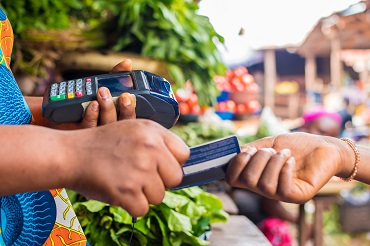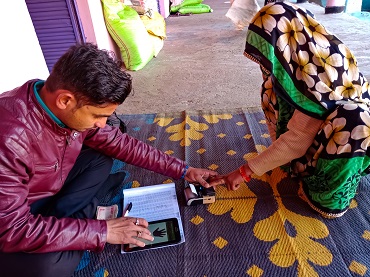Blog
COVID-19 - A Catalyst for Digital Transformation in the SME Lending Ecosystem

Virtual Roundtable Summary
“There is no ‘digital strategy’ anymore, just strategy in a digital world”. Bud Caddell.
Caddell’s statement is more prescient than ever. The current pandemic lockdown poses a fundamental threat to a myriad of SMEs which primarily rely on human interaction and physical transactions for their daily activities. As lenders operate remotely for an indefinite period of time, they now face a key challenge: how to effectively support their SME clients in a quick, flexible, and contactless manner? The answer lies in accelerating the digitization of the full customer journey. And needless to say, companies ready to readjust their strategy in a digital environment will have a decisive edge in dealing with affected businesses.
As part of a weekly series on COVID-19 mitigation efforts, the SME Finance Forum hosted a virtual roundtable on Digital Relief with DBS. David Hui (Regional Head, SME Business Innovations & Solutions, SME Banking at DBS Bank Ltd) and Chloe Huang (Team Lead, SME Business Engagement, SME Banking at DBS Bank Ltd) presented DBS’s digital response to support clients and industries severely hit by the crisis. Acting as discussants, Jesse Weinberg (Head of SME Customer Segment at FNB) and Thomas DeLuca (CEO and Founder of AMP Credit Technologies) then joined a vibrant and informative discussion focused on the urgent need to push digitization efforts in the SME lending ecosystem.
David Hui first spoke about how DBS has quickly introduced a comprehensive set of relief measures in conjunction with the Singaporean government, including a Digital Business Loan and a Temporary Bridging Loan. As David explained, the bank sought to provide short-term liquidity support to its SME segment in a fast, convenient, and digitized way. DBS has thus moved the entire credit journey online, from the loan application to its disbursement. And the bank has not only sped up the whole process - making new loans available within two days - but it has also simplified the documentation requirements by going financial statement-free, requesting only bank statements, notices of tax assessment, and credit bureau scores. Additionally, the SME Banking unit has allowed existing clients to defer principal payments on their secured loans - up to the end of 2020.
Beyond loans and liquidity, David emphasized the importance of assisting businesses in other ways. Through partnerships with associations that represent specific industry segments, DBS has been able to better understand the particular problems and needs of that sector and to identify innovative products and services where they could play a meaningful role. David shared the example of DBS working with the Restaurant Association of Singapore, as the Food and Beverage (F&B) industry was losing 30-80% of revenues due to quarantine restrictions - yet their operating costs remained the same. Compounding those problems was the fact that established food delivery platforms were charging restaurants 30-33% commission on the total bill, thereby significantly narrowing profit margins for restaurants. To address this issue, DBS partnered with the government of Singapore and two homegrown fintech companies, Oddle and FirstCom, to roll out a Digital Relief Package for the F&B industry. Specifically, they enabled F&B businesses to set up an online food ordering site in just three days with much-reduced delivery rates. As a result, DBS enabled SMEs to quickly create additional online channels in order to increase revenue.
In this same vein, DBS’ BusinessClass, a program offering online classes for SMEs, has adapted its customer engagement approach and has launched a #MoreSupportLessWorries campaign to help SMEs cope with COVID-19. Chloe Huang discussed that the team has strengthened its e-training efforts via its SME Academy, allowing SMEs to make the most of the current lull in business activity to upgrade their skills. Available online across the region, Chloe shared that more than 1500 SMEs have freely benefited from guidance and insights on how to efficiently ensure business continuity amid the crisis.
Similar to DBS, many banks did not wait for the recent coronavirus outbreak to embark on their digitization journey. Responding to the DBS experience, Jesse Weinberg indicated that FNB was already prepared to operate online in South Africa, as their digitization process started years ago. And Jesse stressed that COVID-19 has been only fast-tracking the bank’s ongoing digital efforts. Furthermore, FNB established an SME assessment whereby they collected early data to make proactive decisions about what financial and non-financial assistance was needed. This has enabled FNB to pre-approve customers and quickly provide them with appropriate financial aid online - including payment holidays.
Thomas DeLuca underlined the different degrees of digital preparedness across the world, with a focus on three mutually reinforcing and necessary levels for effective digitization: 1) Banks 2) Governments, and 3) Consumers. In particular, Thomas emphasized the critical role played by governments in enabling the transition to a digital environment. As he pointed out, some countries have maintained more restrictive regulations on consumer data protection, especially when it comes to cloud acceptance and e-KYC and AML practices. Disparate regulatory regimes have been extremely challenging for digital lenders which have tried to promptly implement a uniform action plan across various markets.
Finally, the digitization of the lending process has raised concerns over credit risk assessment. According to David Hui, DBS has been playing a delicate balancing act between making credit more accessible to their SME customers and satisfying their fiduciary duty to their stakeholders. To grant loans in a flexible, but prudent manner, the bank has thus been using “good old human common sense” along with data analytics. While assessing the financial situation of a business, lenders must also be able to draw a clear distinction between chronic and COVID-19-related issues, a sine qua none of the proper deployment of these new digital credit facilities.
In conclusion, it was generally agreed that while the pandemic has caused many negative effects, it has also positively forced the digitization of the SME banking ecosystem. Banks, governments, and consumers must all join forces to push the digital transformation forward. However, countries and lenders have not only moved at different paces, but they have also focused on separate and incomplete aspects of what should be a comprehensive and harmonized digitization process. “When digital transformation is done right, it’s like a caterpillar turning into a butterfly, but when done wrong, all you have is a really fast caterpillar” (George Westerman). Without the right approach, many caterpillars in the industry will inevitably fail to emerge as winged butterflies.

























